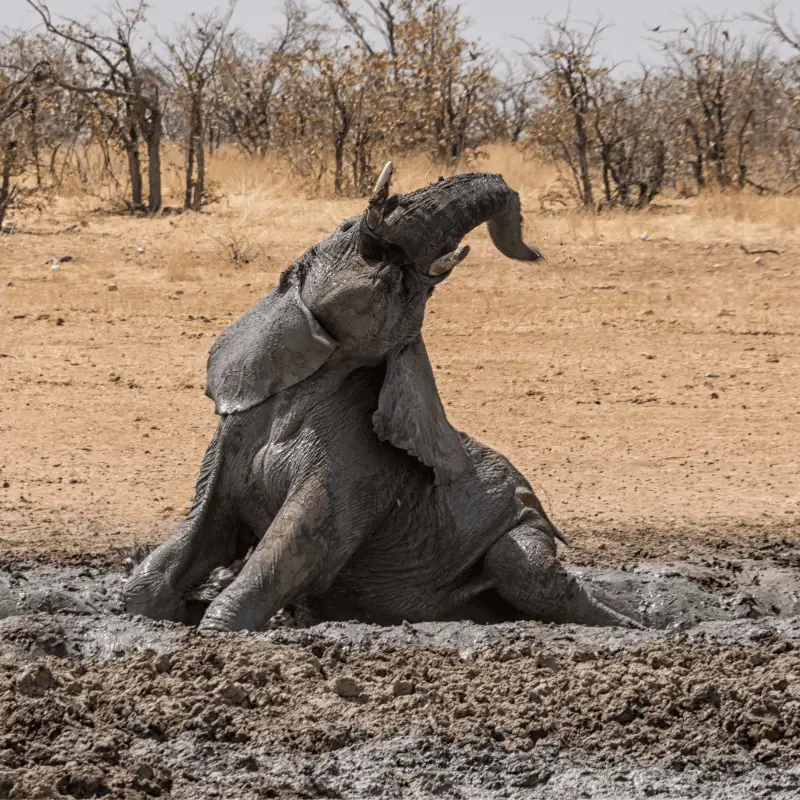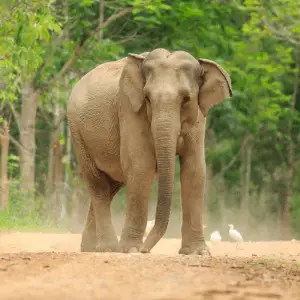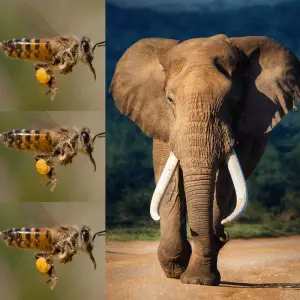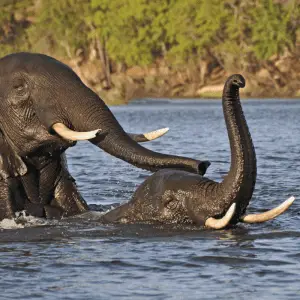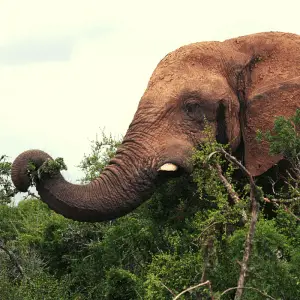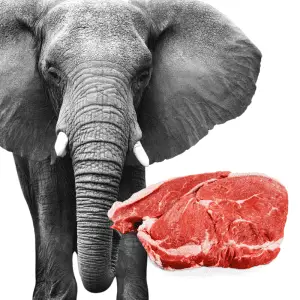Elephants throw dirt on themselves to protect their skin from the sun and to keep cool. The Elephants do this by splashing their bodies with water and then throwing a layer of dirt on their back to help it form a solid thick barrier. The soil also acts as an insect repellent.
The mothers and other elephants spray a shower of dirt and dust on their calves even when sleeping. The wrinkles on the elephants’ skin retain water and mud efficiently, which allows these gentle giants to regulate their body temperature.
Why Do the Elephants Take Mud Baths?
If you notice the activities of an elephant herd, you will see that the elephants spend a significant amount of time rolling around in the mud. While it may look like the elephants are enjoying the mud baths, there is another reason why they take them regularly.
Elephants do not have any sweat glands in their bodies. That means they find it extremely difficult to cool off under the harsh rays of the tropical sun. The mud baths they take cool their bodies off and help them get a protective layer on their skin. It saves their delicate skin from the sun’s rays and insect bites.
Even though the elephant skin looks extremely tough to the naked eye, the harsh sun rays can negatively impact it leading to severe sunburn.
The elephants use two different techniques for a mud bath. The number one method they adopt takes place when they drink water. Once they finish drinking, they kick the water to stir up mud and spray it on their bodies.
The other mud bathing method is churning the mud through the tusk and trunk. After cleaning themselves with water, the elephants use their trunks to spray the dirt on their back.
The younger elephants roll around in mud whenever they get a chance.
Recommended Read: How long are elephants pregnant?
Elephants Create Holes and Footpaths
As one of the largest animals, elephants require a vast amount of water to stay healthy. The problem is that all the watering holes dry up in the summer months. During this time, the elephants often dig their wells to satisfy their water requirements. They use their tusks, feet, and their trunks to dig small watering holes for themselves. The holes they make get filled up with rainwater or groundwater. These watering holes benefit the elephants and other small animals that live in the same habitat. The elephants also make footpaths by treading through the same route over and over.
Recommended Read: How much does an elephant drink?
Elephants Dig Up Soil for Salt
As you may already know, elephants have extremely intelligent animals with massive brainpower. That means they have different nutritional requirements than other animals. To satisfy their unique requirements, the elephants tend to dig up soil. The elephants need salt to stay hydrated. When the elephants cannot gather enough salt from the plant matter, they dig up the dirt to utilise the salt stored. Some even adventure into underground caves to get salt.
Elephants Eat For 12 to 18 Hours
As you already know, elephants have a huge body mass. That is why they require a massive amount of food to sustain themselves. As herbivores, elephants eat leaves, grass, woody shrubs, fruits, and flowers. Elephants can consume 300 pounds of food a day. That means they require considerable time to chew down all the food.
Recommended Read: What does an elephant eat?
Matriarchal Herds
The elephants are very social animals that live in complex and tight-knit female-focused herds. Each herd comprises several related elephants; the herd’s matriarch is generally the mother, grandmother, aunt, or great-aunt.
The matriarch takes care of the entire herd by teaching and watching after the younger elephants, ensuring that the herd members work together to keep themselves safe. Most of the time, the male elephants leave the herd when they become adolescents. However, it has been noted that some male elephants form separate groups of bachelors.
Elephants Have High Empathy
The sociability and intelligence level of elephants are well-known in the research world. Studies have shown that elephants can display actual emotions towards other group members. This factor challenges the notion that animals do not have feelings.
Elephants form relationships with the herd members and often celebrate the birth of new babies. In the herd, matriarchs and other herd members care for the young elephants just like humans. They guide and reassure the elephant babies as they enter their teenage years.
Elephants mourn their demised members and even return to where their friends or family have died to grieve their absence.
Remembering Their Environment
Elephants have a remarkable memory that helps them to understand their surroundings better. An elephant’s unforgettable memory also allows them to avoid dangers. Thanks to their astounding memory, the matriarch can find food and water resources when necessary.
Elephants pass on references of knowledge from one generation to the next. Elephant herds with an older matriarch are far better during the dry months than those with younger matriarchs. This is possible because more senior females remember how they were able to survive in the last droughts.
Remembering Their Friends and Family
Elephants can remember individual members of their clans separately. They can also recognise the members even after not seeing each other for years.

